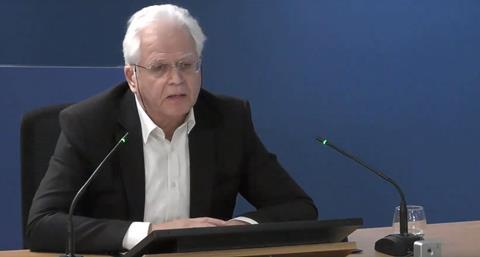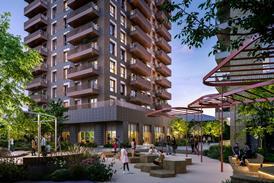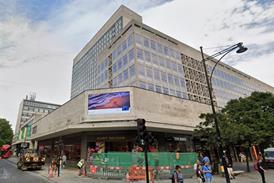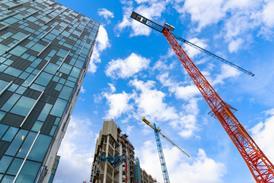Closure of firm “depends entirely” on outcome of inquiry, according to liquidator
Studio E is being kept in liquidation while investigations continue into the Grenfell Tower fire, it has emerged.
The practice which designed the refurbishment of the tower went into voluntary liquidation in 2020 but has been kept from being wound down.

Its work on Grenfell Tower led to the building being wrapped in 3,000sq m of combustible cladding, which has been found to be the main cause of the fire which killed 72 people in 2017.
In a filing on Companies House earlier this year, liquidator Alan J Clark said the closure of the firm “depends entirely on the outcome of the Grenfell Inquiry”.
The document added that the company “remains embroiled in various litigation as a result of the Grenfell Tower fire in 2017 and I am still unable to advise when this is likely to be concluded”.
It comes during an ongoing Metropolitan Police investigation which is currently investigating 19 companies and 58 individuals as suspects, which have not been named.
The charges, which include corporate manslaughter, are expected to be announced in late 2026 with criminal proceedings to start in early 2027.
Studio E has come in for some of the heaviest criticism in this week’s Phase 2 Grenfell Inquiry report out of all project team members which worked on the refurbishment.
The inquiry found the practice should bear a “very significant degree of responsibility” for the disaster for failing to recognise the dangers of installing combustible ACM cladding and other dangerous products on the 24-storey building.
The firm, which had never worked on a high rise building, was said to have failed to act as a “reasonably competent architect”.
Meanwhile, the former head of the technical sales support team for the company which sold the ACM panels to the Grenfell refurbishment project team has denied playing a role in the fire.
Claude Wehrle told the BBC that he was “not the one making decisions” about the sales of Arconic’s Reynobond PE cladding panels.
Wehrle was said in the inquiry’s final report to have engaged in “deliberate dishonesty” to sell the product, including to firms in the UK.
After learning that the panels would not meet European fire standards for tall buildings, as claimed in its marketing literature, Wehrle warned colleagues in an email, adding “we have to keep [this] as ‘VERY CONFIDENTIAL’”.
But later that year he wrote to a customer claiming the product was safer than a different version of the panels which had passed the fire test for the European standard.
Wehrle, who was criticised in the report for refusing to give evidence to the inquiry in person, said the deaths of 72 people in the fire were “a tragedy and more than a pity”.
On Wednesday, Keir Starmer vowed to bar any firms involved in the refurbishment of Grenfell Tower from future government work. Number 10 has since said central government does not hold any contracts with these firms but has announced a review into whether any of the companies have roles in supply chains for public projects.
Housing secretary Angela Rayner has also promised to put pressure on developers to complete remediation works on buildings found to contain combustible products. Starmer’s official spokesperson added that the government would change the law to “compel action” if building owners are “not prepared to act”.
There are more than 2,000 buildings in the UK which have still not had their unsafe cladding removed, according to the latest figures.
















No comments yet